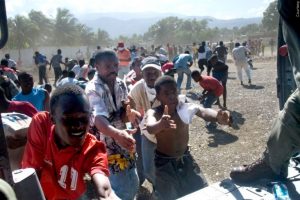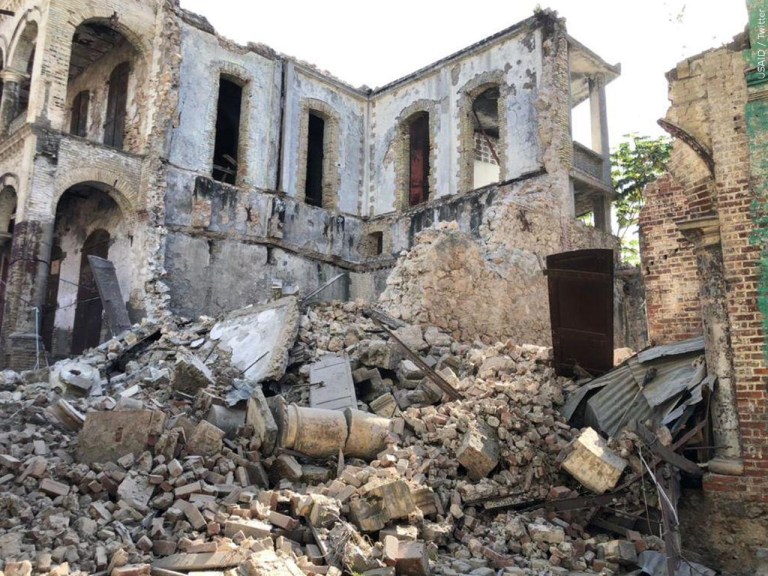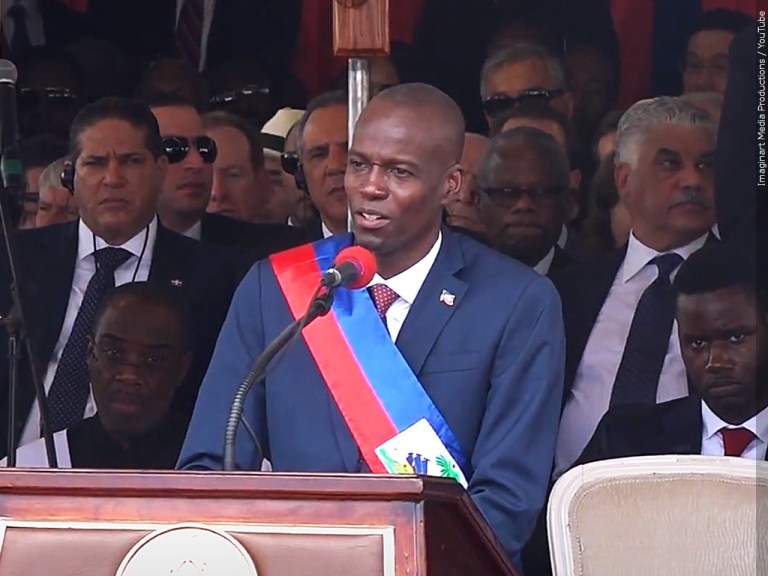Photo courtesy of MGN.
This article first published 8/18/21 by the Minnesota Spokesman-Recorder https://spokesman-recorder.com/2021/08/18/haiti-digs-out-from-another-massive-earthquake/
Island nation, diaspora determined to overcome latest natural disaster
Hours after a 7.2 magnitude earthquake rattled the Caribbean Saturday morning August 14, social media was abuzz with Haitians in the U.S. and Canada offering to pitch in and lend a hand to the relief effort.
“Hello ladies,” began one Facebook post. “[Are] there any nurses, doctors, volunteers, who want to go help in Haiti [?] I’m down for it. Haiti needs our help right now.”
“I’m down. For like a week or two,” wrote one of the respondents.
“I’m interested.” wrote another.
“Let’s go Haiti need[s] us,” responded a third.
“Is it possible to Zoom meeting to discuss how we can help Haiti [?]” one woman posted in her Facebook group.
As of Sunday, Haiti’s Civil Protection agency had counted almost 1,300 dead and 30,000 injured in the country’s southwest corner near the earthquake’s epicenter. More than 1,000 homes, seven churches, two hotels and three schools have been destroyed.
The devastation, of course, comes only five weeks after gunmen burst into Haiti’s presidential palace and assassinated President Jovenel Moïse.
But if the myriad catastrophes have left the Haitian diaspora feeling what Western psychologists refer to as “compassion fatigue”—an indifference to charitable appeals resulting from the frequency of pleas for help—there are no outward signs of emotional burnout. Rather, resiliency seems to be the default position among Haitians, both at home and abroad, who are heirs to a complicated legacy of struggle and perseverance that includes the first successful slave revolt in history.
“There’s a collective feeling of being overwhelmed, but we’re pushing through it,” said Nedjhy Dominique, a 42-year-old Haitian-born American who lives in South Florida. “The sense of community is our strongest connection.
“I spoke with my cousin today, and she’s already trying to figure out how to temporarily house those left homeless in the southern part of the county by creating a network of host families who have rental properties there and are willing to allow them to stay there for at least 30 days at no charge,” said Dominique.
“A friend of mine has already spoken with her employer—a medical supply manufacturing company—and has them agreeing to donate $50,000 worth of medical equipment. We’re resourceful.”

That is largely by necessity, however, says Dominique and other Haitians who contend that funds raised by the international community for Haitian relief efforts tend to disappear. When an earthquake measuring 7.0 on the Richter scale struck just west of Haiti’s capital city of Port-Au-Prince in 2010, U.S. Secretary of State Hillary Clinton was appointed by Congressional lawmakers to oversee $4.4 billion in disaster relief.
Her husband, former President Bill Clinton, was named co-chair of a government committee tasked with formulating spending priorities. Despite the Clintons’ promises to jumpstart Haiti’s economy, however, critics say that the largest post-earthquake project—a $300 million, 600-acre industrial park on the country’s northern coast—is nothing more than an amalgam of foreign-owned sweatshops that produce cheap clothing for consumers in the U.S.
Similarly, executives with the International Red Cross claim that with the $500 million in charitable donations it raised following the 2010 earthquake, the agency provided housing to 130,000 displaced Haitians. But a 2015 investigation by National Public Radio and ProPublica found that the charity had only built six homes.
“Five hundred million in Haiti is a lot of money,” Jean-Max Bellerive, Haiti’s prime minister in 2010, told NPR. “I’m not a big mathematician, but I can make some additions. It doesn’t add up for me.”
“A lot of the people who are trying to get help to those in Haiti are very clear on their distrust of the Red Cross and other organizations with a proven track record of squandering resources and money meant to serve those in need,” said Dominique. “We aren’t just waiting to be saved; if that were the case we’d die waiting.”
In total, the United Nations reported that non-governmental organizations, U.S. tax dollars, and charities worldwide raised $13 billion for relief following Haiti’s 2010 earthquake. Yet the yawning gap between that figure and daily life for 10 million Haitians living in the poorest country in the Western hemisphere left many Haitian Americans ambivalent about Hillary Clinton’s 2016 presidential run.
Trump campaigned heavily in South Florida’s Haitian community during the campaign alleging that “Friends of Bill” Clinton received sweetheart contracts from the ex-president and his wife. Trump won the state by a slim margin in 2016.
Haitian authorities Sunday declared a state of emergency and said they had no preliminary tally of those missing after Saturday’s earthquake. Hospitals in Haiti are at full capacity, and the Health Ministry asked people to donate blood.
“The needs are enormous,” Prime Minister Ariel Henry told reporters. “We must take care of the injured and fractured, but also provide food, aid, temporary shelter and psychological support.”
In a Facebook chat this weekend, another Haitian American echoed concerns that Haitians could not wait on international assistance: “Please count me in. Let’s use our strength in numbers to help Haiti. Hopefully, the mistakes of 2010 will not be replicated as an influx of funds earmarked for rebuilding efforts poured in from all over the globe yet not much had changed.
“We need to brainstorm ways to help the communities affected by the earthquake and raise funds to do so,” the post continued. “A small donation of $1 per person would be helpful…There must be accountability for any funds or goods donated for these people cannot be preyed on as is often the case with ‘us’.”


